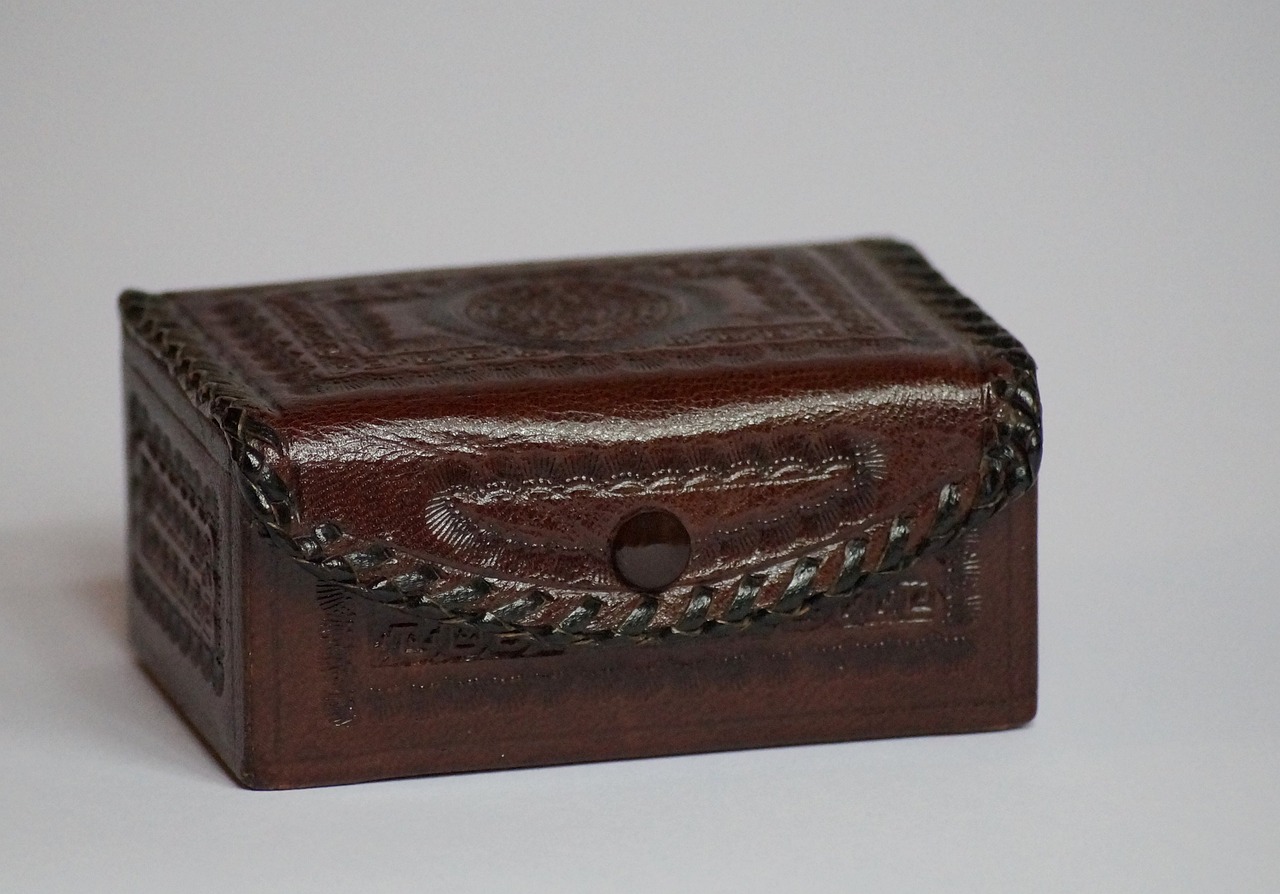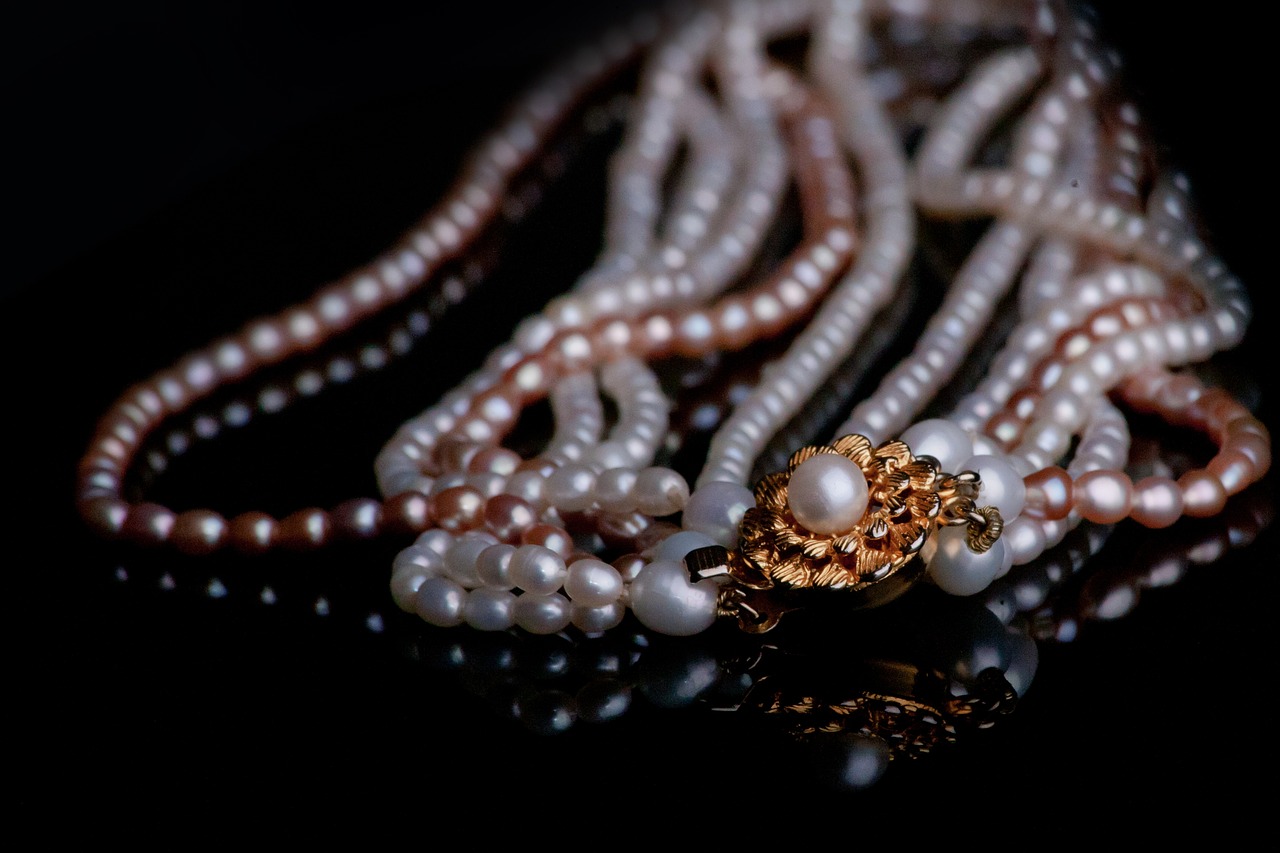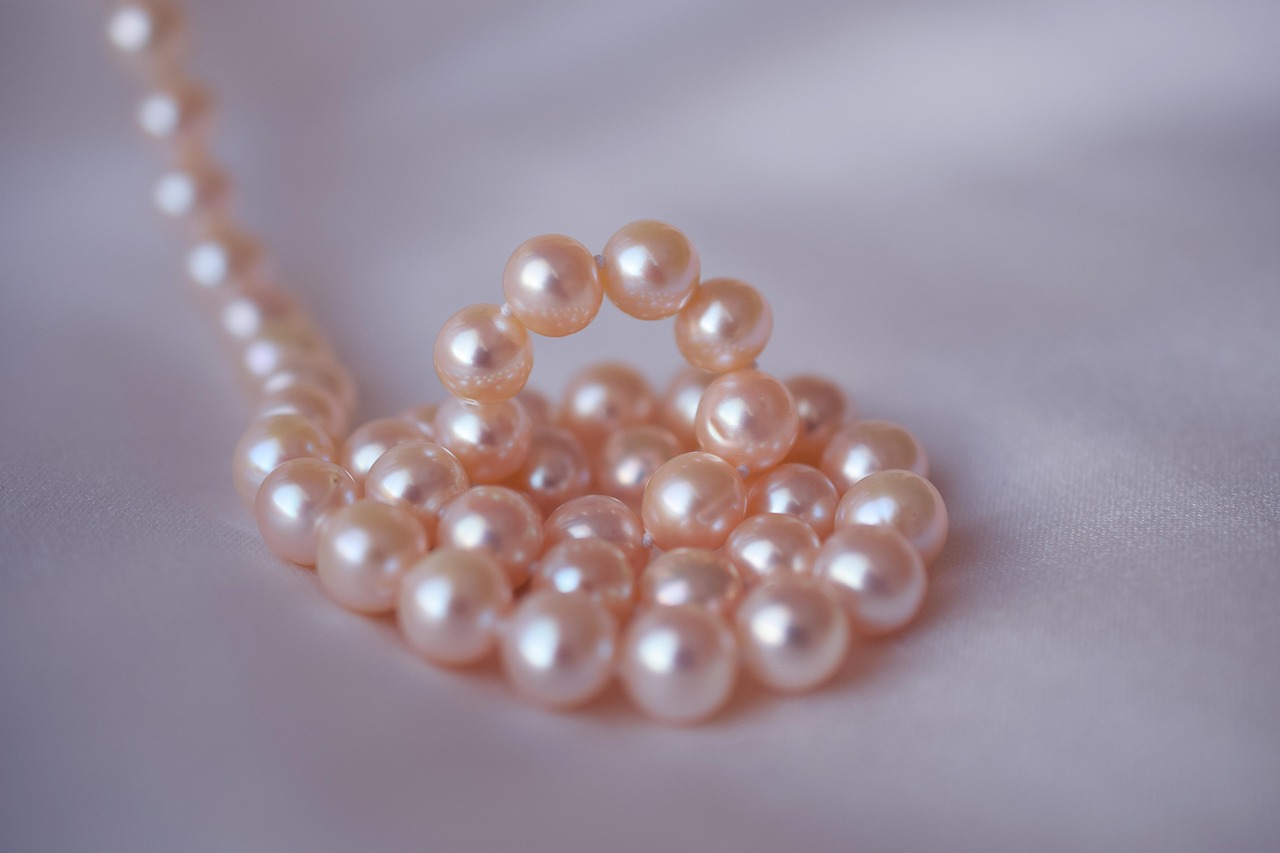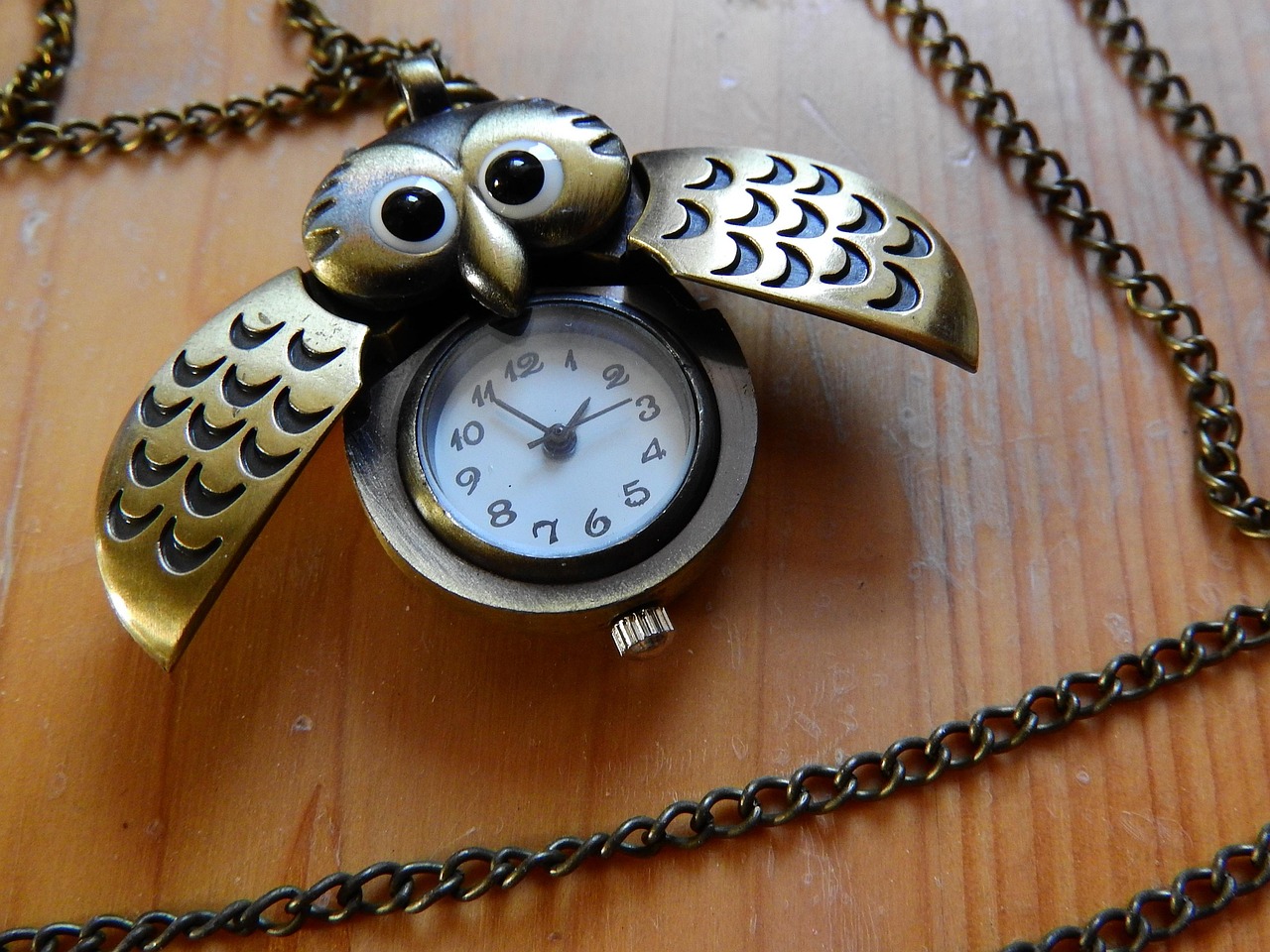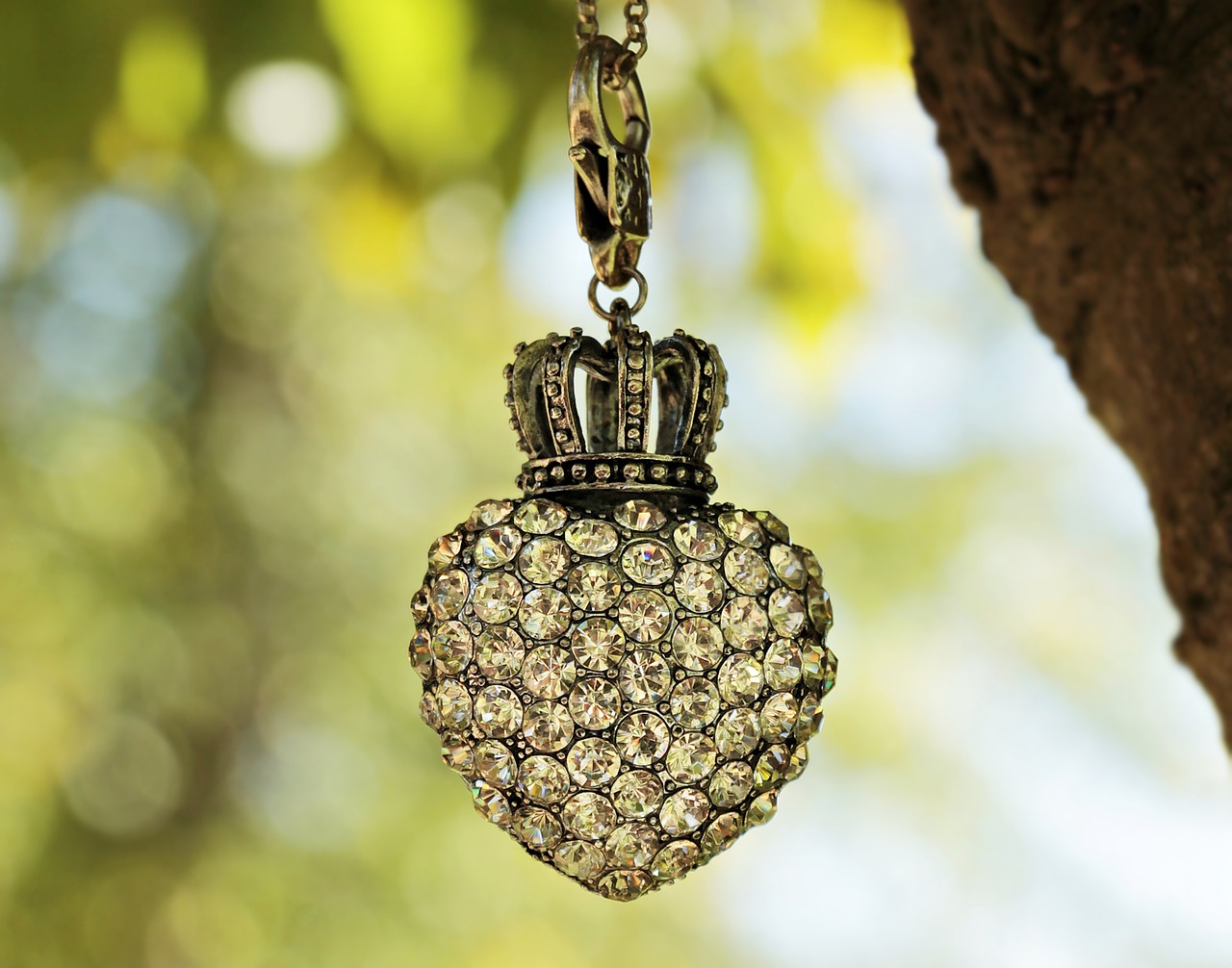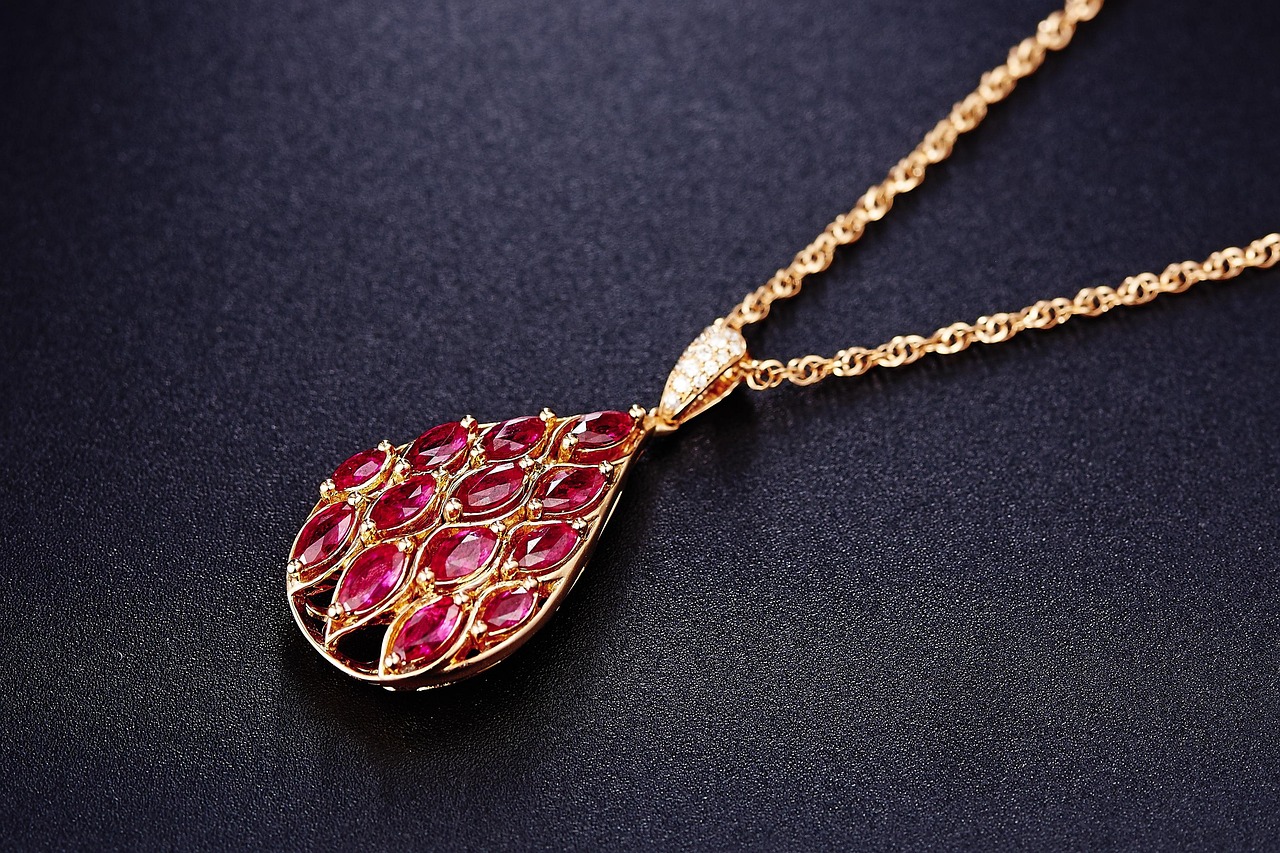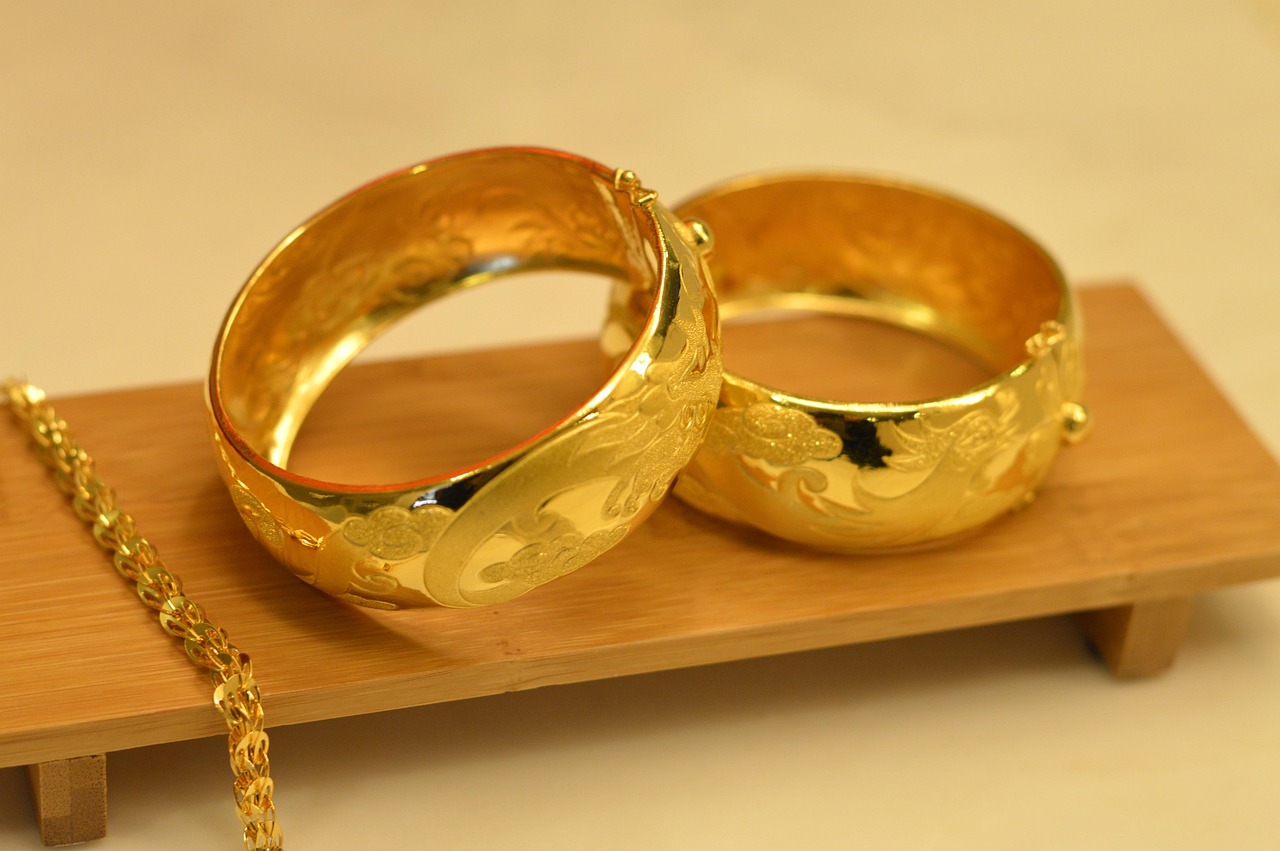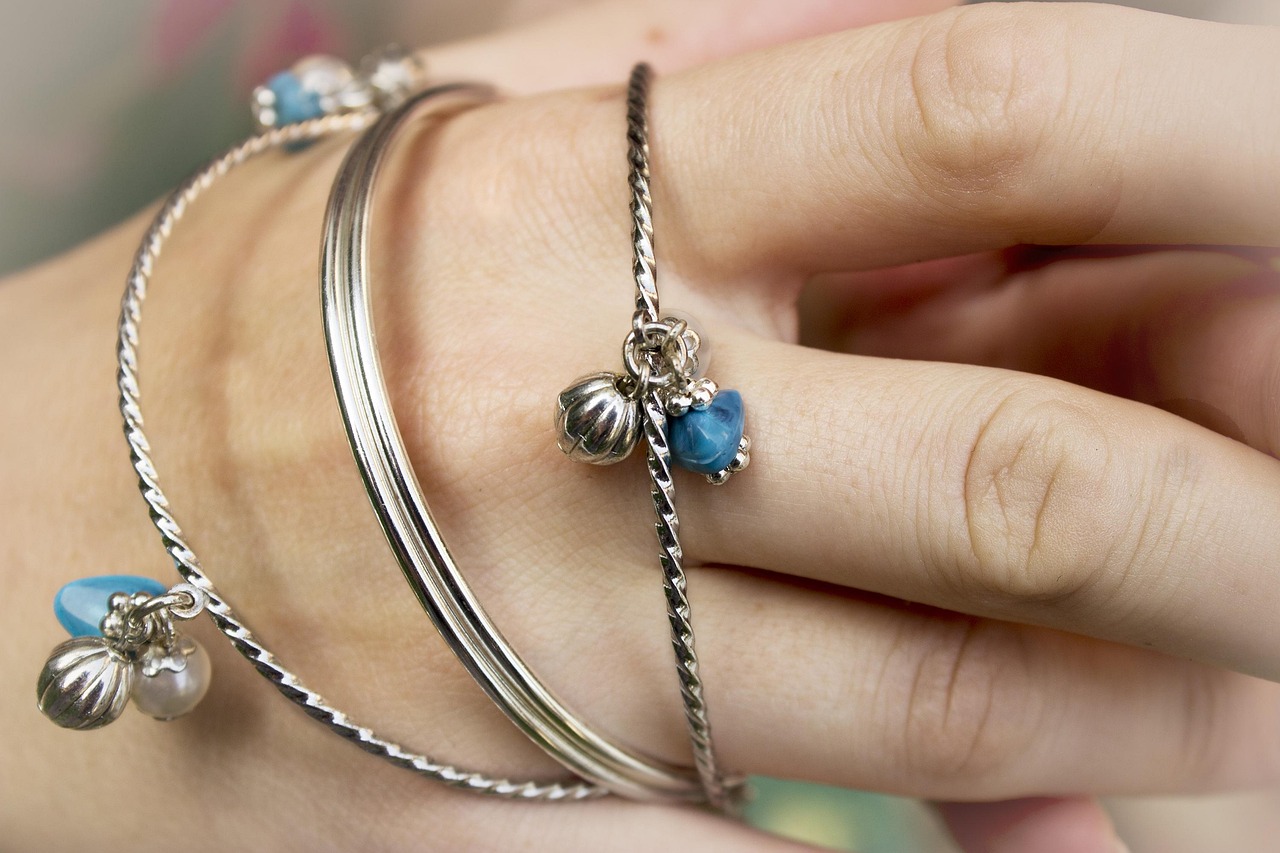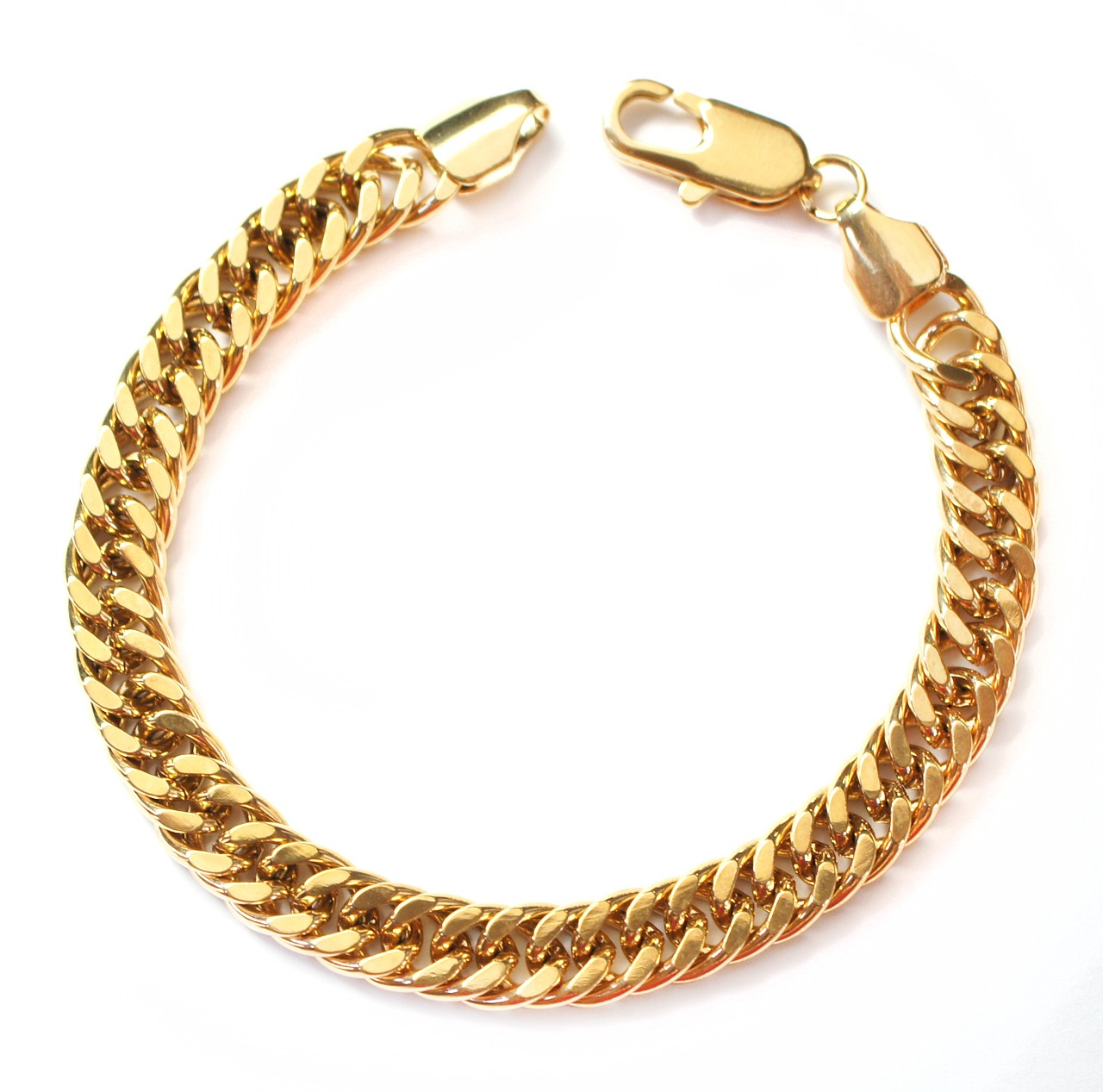This article delves into effective strategies for negotiating the best price when selling jewelry, offering insights and tips to maximize your earnings while ensuring a smooth transaction. Understanding the nuances of jewelry sales can significantly enhance your experience and financial outcome.
Why is Negotiation Important in Jewelry Sales?
Negotiation is a critical skill in jewelry sales, as it can greatly influence the final price you receive. By honing your negotiation skills, you can secure better offers and achieve a more satisfactory sale. A successful negotiation not only benefits your wallet but also fosters a positive relationship with potential buyers.
What Factors Influence Jewelry Pricing?
- Materials: The type of materials, such as gold, silver, or gemstones, directly affects value.
- Craftsmanship: High-quality craftsmanship can elevate the perceived worth of your jewelry.
- Brand: Well-known brands often command higher prices due to their reputation.
- Market Demand: Understanding current trends and demand can help you set realistic expectations.
Understanding Material Value
The materials used in your jewelry play a vital role in determining its value. Familiarizing yourself with these materials can enhance your negotiation power. For instance, knowing the current market price of gold and silver can help you set a competitive asking price.
Gemstone Quality and Rarity
The quality and rarity of gemstones significantly influence their market value. Researching these factors can provide you with the necessary information to justify your asking price during negotiations.
Craftsmanship and Brand Reputation
Highlighting the craftsmanship and brand associated with your jewelry can strengthen your position in negotiations. Buyers are often willing to pay more for pieces that demonstrate exceptional artistry or come from reputable brands.
How to Assess the Value of Your Jewelry?
Accurately assessing your jewelry’s value is crucial before entering negotiations. Here are some methods to determine a fair asking price:
- Professional Appraisals: Seeking a professional appraisal can provide an objective assessment that serves as a strong foundation for your negotiations.
- Online Marketplaces: Researching similar items on platforms like eBay or Etsy can help you understand current pricing trends.
What Strategies Can Help You Negotiate Effectively?
Employing effective negotiation strategies can enhance your chances of securing a better price. Here are some practical tips:
- Set a Minimum Acceptable Price: Establish a minimum price you are willing to accept to maintain focus during discussions.
- Be Patient and Open to Offers: Patience can lead to unexpected opportunities and better deals.
How to Handle Low Offers?
Receiving low offers can be disheartening, but knowing how to respond can keep negotiations alive:
- Counter with Justifications: Use your research to counter low offers and reinforce your asking price.
- Maintain Professionalism: Keeping a professional demeanor fosters a positive atmosphere and can lead to better outcomes.
What Are Common Mistakes to Avoid in Jewelry Negotiations?
Being aware of common pitfalls can help you avoid mistakes that could jeopardize your selling price:
- Overvaluing Your Jewelry: Avoid letting sentiment cloud your judgment; understanding market value is essential.
- Failing to Prepare: Entering negotiations without preparation can lead to unfavorable outcomes.
When Should You Consider Professional Help?
In some cases, seeking professional help may be beneficial:
- Using Auction Houses: For particularly valuable items, auction houses can provide a platform for competitive bidding.
- Hiring a Jewelry Broker: A broker can leverage industry connections to negotiate on your behalf.
By employing these strategies and understanding the various factors that influence jewelry pricing, you can effectively negotiate to get the best possible price for your items.
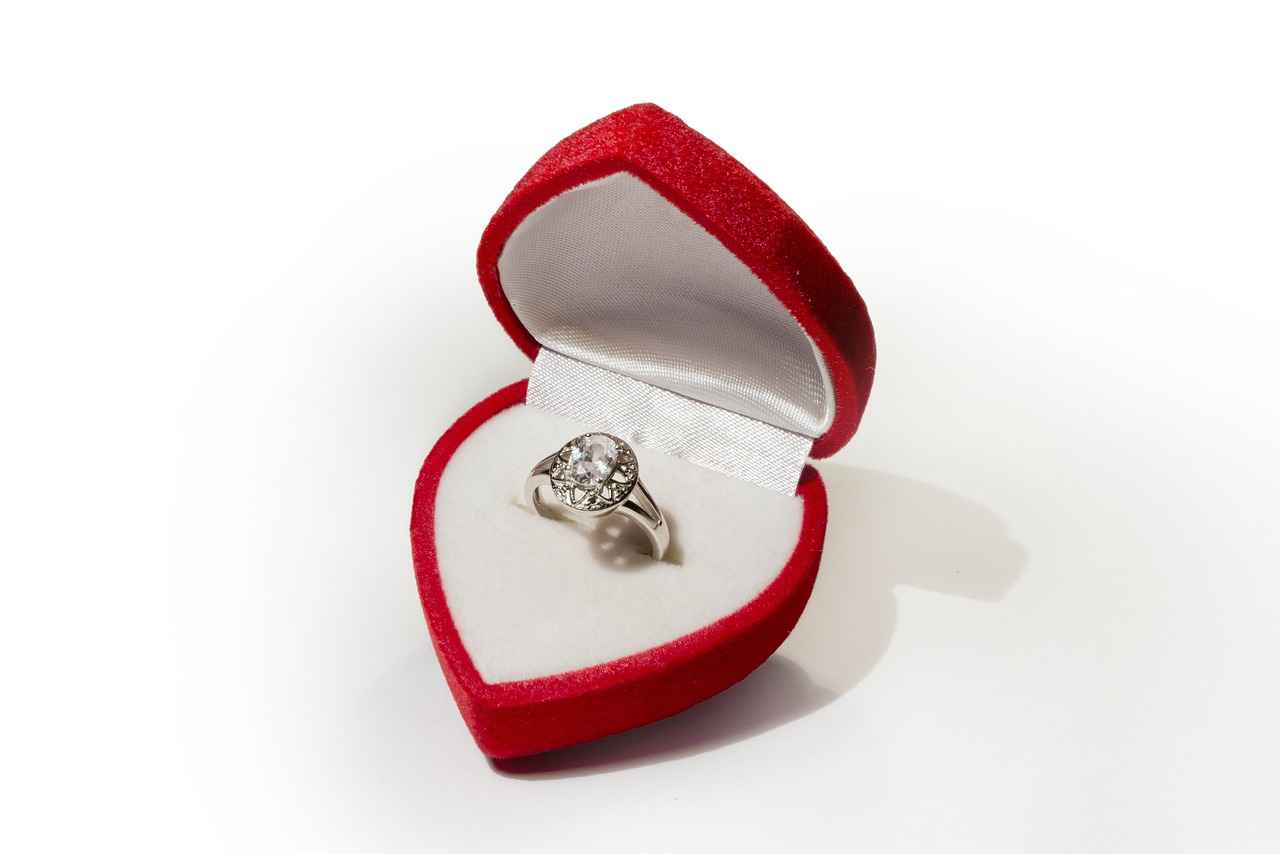
Why is Negotiation Important in Jewelry Sales?
Negotiation plays a crucial role in the jewelry sales process, as it can significantly influence both the selling experience and the final price achieved. Understanding the nuances of negotiation can empower sellers to secure better offers and foster a more satisfying transaction. In this section, we will explore the reasons why negotiation is essential in jewelry sales and how it can lead to improved outcomes.
When selling jewelry, the ability to negotiate effectively can make a notable difference in the final sale price. Effective negotiation skills can lead to better offers and a more satisfactory sale, which is why it’s important to approach this aspect with care and strategy.
- Maximizing Profit: One of the primary reasons for engaging in negotiation is to maximize your profit. By confidently discussing your jewelry’s value, you can often secure a price that exceeds your initial expectations.
- Understanding Buyer Psychology: Negotiation allows sellers to understand the buyer’s perspective. By listening to their needs and concerns, you can tailor your approach to address these points, ultimately leading to a more favorable outcome.
- Building Relationships: Effective negotiation can also foster positive relationships between buyers and sellers. A respectful and open dialogue can lead to repeat business and referrals, which are invaluable in the jewelry market.
- Flexibility in Offers: Negotiation opens the door to creative solutions. For example, if a buyer cannot meet your asking price, you might explore alternative options, such as payment plans or trade-ins, which can benefit both parties.
Moreover, understanding the importance of negotiation equips sellers with the confidence to advocate for their jewelry’s worth. This confidence can be particularly beneficial when dealing with low offers or negotiating with seasoned buyers who may be skilled in the art of persuasion.
Additionally, being well-prepared with knowledge about your jewelry’s value, market trends, and comparable sales can significantly enhance your negotiating position. For instance, if you are aware of the current market demand for certain gemstones or the craftsmanship associated with your piece, you can leverage this information to justify your asking price.
In summary, negotiation is a vital skill in jewelry sales that can lead to improved financial outcomes and stronger relationships with buyers. By honing your negotiation techniques and understanding the factors that influence buyer behavior, you can navigate the selling process with greater ease and success.
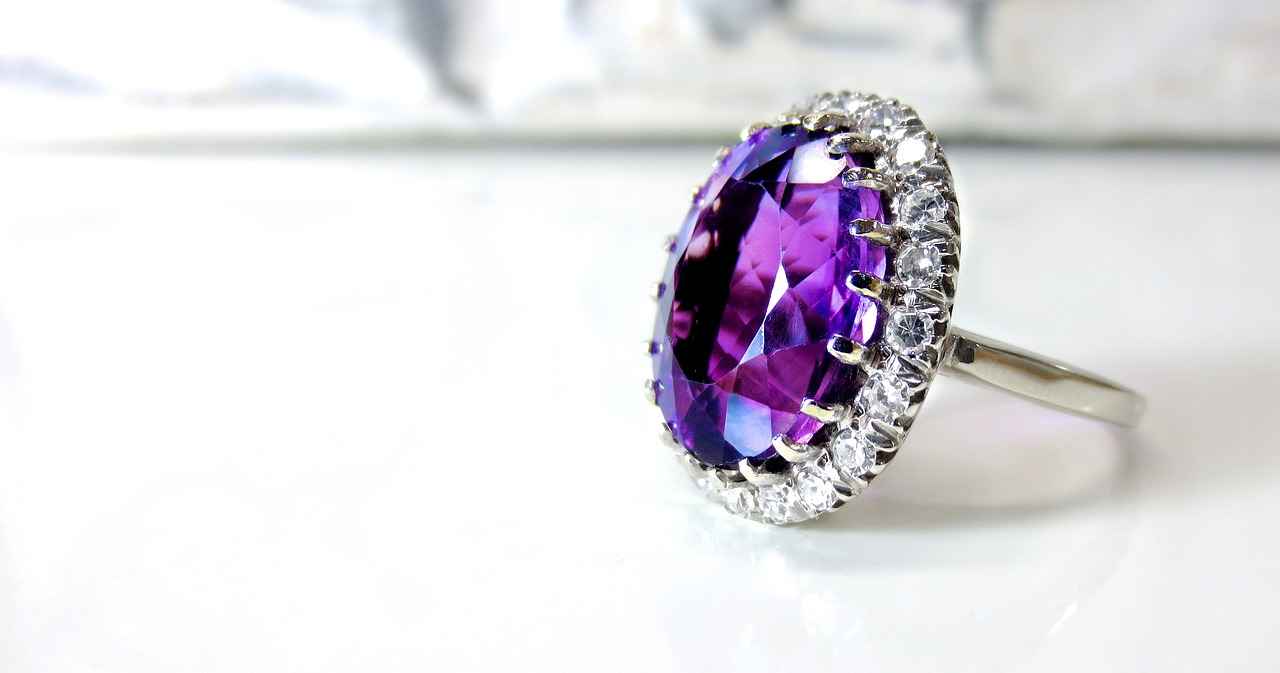
What Factors Influence Jewelry Pricing?
When it comes to selling jewelry, understanding the intricacies of pricing is essential. There are several key factors that can significantly influence the price of jewelry, and being aware of these can empower you during negotiations. In this section, we will explore the primary elements that affect jewelry pricing, enabling you to set realistic expectations and negotiate effectively.
Several factors can affect the price of jewelry, including materials, craftsmanship, brand, and market demand. Knowing these elements can help you set realistic expectations when negotiating.
- Materials: The type of materials used in jewelry is one of the most significant determinants of its value. Precious metals like gold and platinum, along with high-quality gemstones such as diamonds, sapphires, and emeralds, can greatly increase the price. Understanding the current market value of these materials is crucial for effective negotiation.
- Craftsmanship: The skill and artistry involved in creating jewelry can also impact its price. Handcrafted pieces often carry a premium due to the time and effort invested in their creation. Highlighting the craftsmanship can bolster your position when discussing price.
- Brand Reputation: Well-known brands often command higher prices due to their established reputation and perceived quality. If your jewelry is from a prestigious brand, be sure to emphasize this during negotiations.
- Market Demand: The demand for specific styles or types of jewelry can fluctuate, affecting prices. Seasonal trends, fashion influences, and economic conditions can all play a role in determining how much buyers are willing to pay.
The materials used in your jewelry are fundamental to its overall value. For example, the price of gold and silver can fluctuate based on market conditions. Keeping track of these trends will help you set a competitive price and negotiate effectively.
When it comes to gemstones, factors such as quality and rarity significantly affect their market value. High-quality stones with fewer inclusions and vibrant colors are more sought after. Additionally, rare gemstones can command a premium price, so understanding these aspects can help you justify your asking price during negotiations.
The craftsmanship involved in creating your jewelry can add to its perceived value. Pieces that showcase intricate designs or unique features often attract higher offers. Furthermore, if your jewelry is associated with a reputable brand, this can enhance its desirability and price point.
Accurately assessing your jewelry’s value is vital before entering negotiations. Here are some methods to help you determine a fair asking price:
- Professional Appraisals: Seeking a professional appraisal can provide an objective assessment of your jewelry’s value, serving as a solid foundation for your negotiations.
- Online Marketplaces: Researching similar items on online marketplaces can offer insights into current pricing trends, helping you set a competitive price for your jewelry.
Employing effective negotiation strategies can enhance your chances of securing a better price. Here are some practical tips:
- Set a Minimum Acceptable Price: Before negotiations begin, establish a minimum price you are willing to accept. This will help you maintain focus during discussions.
- Be Patient: Patience can be a powerful tool in negotiations. Being open to various offers may lead to unexpected opportunities and better deals.
Understanding Material Value
in jewelry is essential for anyone looking to sell their pieces effectively. The materials used, including gold, silver, and gemstones, significantly influence the overall value of the jewelry. By familiarizing yourself with these materials, you can enhance your negotiation power and achieve a better price.
When it comes to gold, its value is determined not only by its purity but also by market fluctuations. Gold is typically measured in karats, with 24 karats being pure gold. Understanding the current market price for gold can give you a solid foundation for your asking price. For instance, if the market price is high, you can confidently negotiate a better deal.
Silver is another popular material in jewelry making, often used for its affordability compared to gold. The value of silver is also subject to market changes. Knowing whether your silver jewelry is sterling (92.5% pure silver) or a lower quality can impact its worth. Keeping abreast of silver prices will help you negotiate effectively, especially when selling items that may have unique designs or historical significance.
Moving on to gemstones, their value is influenced by several factors including quality, rarity, and cut. High-quality gemstones such as diamonds, sapphires, and emeralds can fetch premium prices, especially if they possess exceptional clarity and color. Familiarizing yourself with the Four Cs of gemstones—cut, color, clarity, and carat weight—can empower you in negotiations. For example, a well-cut diamond with high clarity can command a much higher price than a poorly cut one, even if they are of the same carat weight.
| Material | Factors Influencing Value |
|---|---|
| Gold | Purity, market price fluctuations |
| Silver | Quality (sterling or otherwise), market demand |
| Gemstones | Quality (Four Cs), rarity, market trends |
Understanding these materials is not just about knowing their worth; it also involves recognizing the emotional and historical significance they may carry. For instance, vintage pieces or those with unique craftsmanship can have added value beyond the raw materials used. This knowledge can be a powerful tool in negotiations, allowing you to articulate why your jewelry deserves a higher price.
Moreover, the brand associated with your jewelry can influence its value. Well-known brands often carry a premium due to their reputation for quality and exclusivity. Highlighting the brand during negotiations can strengthen your position and justify a higher asking price.
In conclusion, understanding the material value of your jewelry is crucial for effective negotiation. By being well-informed about gold, silver, and gemstones, you can confidently approach potential buyers and enhance your chances of securing a favorable deal.
Gold and Silver Prices
When it comes to selling jewelry, understanding the fluctuating prices of gold and silver is crucial. These precious metals play a significant role in determining the overall value of your jewelry. With market trends constantly changing, keeping an eye on current prices can empower you to negotiate more effectively and maximize your returns.
The prices of gold and silver are influenced by various factors, including economic conditions, geopolitical events, and changes in supply and demand. As these prices rise or fall, they directly affect how much you can ask for your jewelry. For instance, if gold prices are high, your gold jewelry will likely command a better price in the market. Conversely, a drop in prices might necessitate a reevaluation of your asking price.
- Follow Financial News: Regularly check financial news outlets for updates on precious metal prices.
- Use Mobile Apps: There are various apps available that provide real-time updates on gold and silver prices.
- Join Online Forums: Engaging in online communities can help you gain insights from other sellers and buyers.
Market fluctuations can create opportunities or challenges when selling jewelry. For example, during times of economic uncertainty, gold often becomes a safe haven, leading to increased demand and higher prices. On the other hand, in a stable economy, the demand may decrease, resulting in lower prices. Staying informed allows you to time your sale strategically.
When you are aware of the current market trends, you can leverage this knowledge in your negotiations. Here are some effective strategies:
- Research Comparable Sales: Look for recently sold items similar to yours to establish a baseline for your asking price.
- Highlight Quality: Emphasize the quality of your jewelry, including craftsmanship and condition, to justify your price.
- Be Flexible: While it’s essential to have a price in mind, being open to negotiation can lead to better outcomes.
Many sellers make the mistake of not adjusting their prices based on current market trends. Overvaluing jewelry based on sentimental value rather than market value can lead to disappointment. Always base your asking price on factual data rather than emotions.
Understanding the fluctuating prices of gold and silver is vital for anyone looking to sell jewelry. By keeping track of market trends and employing effective negotiation strategies, you can significantly enhance your selling experience and achieve a satisfactory price. Remember, knowledge is power in negotiation, especially in a market as dynamic as precious metals.
Gemstone Quality and Rarity
When it comes to selling jewelry, one of the most critical factors that can influence your asking price is the quality and rarity of the gemstones involved. Understanding these elements can provide you with a significant advantage during negotiations, allowing you to justify your pricing with confidence.
The quality of a gemstone is typically assessed based on the Four Cs: Cut, Color, Clarity, and Carat weight. Each of these factors plays a crucial role in determining the overall value of the stone:
- Cut: The way a gemstone is cut affects its brilliance and overall aesthetic appeal. Well-cut stones reflect light beautifully, enhancing their value.
- Color: The hue, saturation, and tone of a gemstone significantly influence its desirability. Rare colors or vivid saturation can command higher prices.
- Clarity: This refers to the presence of inclusions or blemishes. The fewer imperfections a gemstone has, the more valuable it is.
- Carat Weight: Larger gemstones are often more valuable, but this is also dependent on quality. A smaller, high-quality stone may be worth more than a larger, lower-quality one.
Rarity can greatly enhance the value of a gemstone. Stones that are rare or difficult to find tend to attract collectors and enthusiasts, driving up their market price. For instance, gemstones like Alexandrite and Red Beryl are much rarer than diamonds and can fetch significantly higher prices. Understanding the rarity of your gemstones can help you position them effectively during negotiations.
Before entering negotiations, it is essential to conduct thorough research on your gemstones. Here are some methods to help you assess their quality and rarity:
- Professional Appraisals: Engaging a certified gemologist can provide you with an accurate appraisal of your gemstones, helping you understand their true value.
- Market Research: Investigating current market trends and prices for similar gemstones can give you a clear picture of what buyers are willing to pay.
- Certification: Having your gemstones certified by reputable organizations can enhance their marketability and justify your asking price during negotiations.
Once you have a solid understanding of the quality and rarity of your gemstones, you can leverage this information in negotiations. Here are some strategies:
- Highlight Unique Features: When discussing your gemstones, emphasize their unique qualities, such as exceptional color, clarity, or historical significance.
- Provide Documentation: Present any appraisals, certifications, or historical data that can substantiate your claims regarding the quality and rarity of the gemstones.
- Be Prepared to Educate: Not all buyers will be familiar with the intricacies of gemstones. Be ready to explain why your gemstones are valuable, which can help justify your asking price.
In conclusion, understanding the quality and rarity of your gemstones is crucial for effective negotiation. By being informed and prepared, you can confidently justify your asking price and increase your chances of securing a favorable deal.
Craftsmanship and Brand Reputation
play a pivotal role in the perceived value of jewelry. When selling your jewelry, it is essential to highlight these aspects, as they can significantly strengthen your position in negotiations. Understanding how craftsmanship and brand reputation affect value can lead to a more successful sale.
Jewelry that showcases exceptional craftsmanship is often viewed as more desirable. Skilled artisans invest time and effort into creating pieces that not only look beautiful but also demonstrate high-quality techniques. This attention to detail can include:
- Intricate Designs: Unique and detailed designs can set your piece apart from mass-produced items.
- Quality Materials: The use of high-grade metals and gemstones enhances the overall quality.
- Finishing Techniques: Polishing, engraving, and setting stones are critical in showcasing the jeweler’s skill.
When discussing your jewelry with potential buyers, emphasize the craftsmanship. You can mention the techniques used, the artist’s background, and any special features that highlight the quality of the piece. This information can justify a higher asking price and strengthen your negotiation position.
In addition to craftsmanship, the brand reputation associated with your jewelry can significantly impact its value. Well-known brands often command higher prices due to their established trust and recognition in the market. Factors that contribute to a brand’s reputation include:
- Heritage: Brands with a long-standing history often have a loyal customer base.
- Quality Assurance: Reputable brands are known for their consistent quality, which can lead to higher resale values.
- Celebrity Endorsements: If a piece is associated with a celebrity or a high-profile event, its value can increase dramatically.
When negotiating, be sure to mention the brand name and its significance. Buyers may be willing to pay a premium for jewelry from a reputable brand, especially if it comes with original packaging or certificates of authenticity. Highlighting the brand can also evoke emotional connections for potential buyers, making them more inclined to meet your asking price.
Combining both craftsmanship and brand reputation creates a compelling narrative around your jewelry. This story can be a powerful tool in negotiations. For instance, if your piece is handcrafted by a renowned artisan and comes from a prestigious brand, you can confidently justify a higher price point. Buyers are often willing to invest more in items that carry a story and reflect quality craftsmanship.
In summary, the interplay between craftsmanship and brand reputation is vital for maximizing the perceived value of your jewelry. By effectively communicating these aspects during negotiations, you can enhance your chances of achieving a favorable outcome. Remember, a well-crafted piece from a respected brand not only showcases beauty but also carries a legacy that can significantly influence its market value.
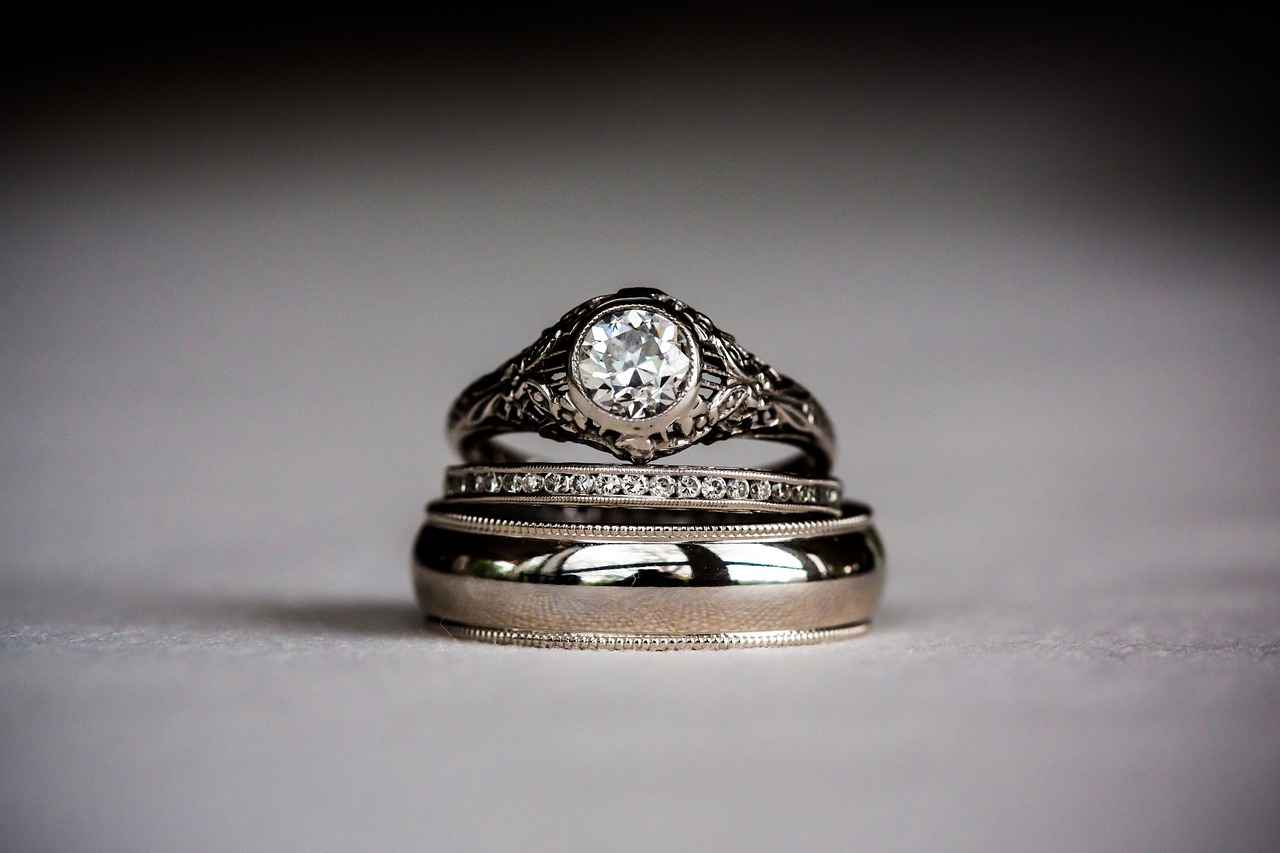
How to Assess the Value of Your Jewelry?
Assessing the value of your jewelry accurately is essential before entering negotiations. Understanding the worth of your pieces not only empowers you but also ensures that you receive a fair price. Here, we will explore various methods and resources to help you determine an appropriate asking price for your jewelry.
Knowing the value of your jewelry is crucial for several reasons. First, it allows you to set a realistic price based on the current market conditions. Second, it enhances your confidence during negotiations, as you can justify your asking price with solid data. Lastly, an accurate valuation helps prevent potential losses, ensuring you don’t sell your items for less than they are worth.
- Professional Appraisals: One of the most reliable methods to determine the value of your jewelry is through a professional appraisal. Certified appraisers have the expertise to evaluate your pieces based on various factors such as materials, craftsmanship, and market trends. This formal assessment can serve as a strong foundation for your negotiations.
- Researching Online Marketplaces: In today’s digital age, numerous online platforms allow you to compare similar jewelry items. Websites such as eBay, Etsy, and specialized jewelry marketplaces provide insight into what similar pieces are selling for. This research can help you gauge the market demand and set a competitive price.
- Understanding Material Value: The type of materials used in your jewelry significantly affects its worth. For instance, gold and silver prices fluctuate regularly, so staying informed about current market prices is vital. Additionally, the quality and rarity of gemstones can greatly influence value, making it essential to understand these aspects.
- Considering Craftsmanship and Brand: The reputation of the brand and the craftsmanship involved in creating your jewelry can enhance its perceived value. High-quality workmanship and well-known brands often command higher prices, so be sure to highlight these factors during negotiations.
Utilizing various tools and resources can further assist in assessing your jewelry’s value:
- Jewelry Valuation Apps: Several mobile applications are designed to help users assess their jewelry’s value. These apps often provide features that allow you to input details about your pieces and receive an estimated value based on current market trends.
- Gemological Laboratories: If your jewelry contains gemstones, consider seeking a report from a reputable gemological laboratory. These reports provide detailed information about the quality and authenticity of the stones, which can significantly affect the overall value.
- Jewelry Auctions: Observing the results of jewelry auctions can give you a clear picture of what similar items are fetching in the market. Auction houses often publish their results, allowing you to see the final sale prices of comparable pieces.
Accurately assessing your jewelry’s value is a multifaceted process that requires careful consideration of various factors. By utilizing professional appraisals, conducting thorough research, and leveraging available tools and resources, you can arrive at a fair asking price. This knowledge not only empowers you during negotiations but also ensures a successful sale.
Professional Appraisals
When it comes to selling jewelry, understanding its true value is crucial for achieving the best possible price. One of the most effective ways to ascertain this value is through a professional appraisal. This process not only provides an objective assessment of your jewelry’s worth but also serves as a vital tool in your negotiation arsenal.
Professional appraisals are conducted by certified experts who have extensive knowledge of the jewelry market. They evaluate various factors, including material quality, craftsmanship, and market demand. This thorough evaluation helps to establish a credible baseline for negotiations, ensuring that you have a solid foundation when discussing prices with potential buyers.
Having a formal appraisal can significantly strengthen your bargaining position. When you present a documented valuation from a qualified appraiser, it adds legitimacy to your asking price. Buyers are more likely to take your claims seriously if they are backed by a professional assessment. Additionally, this can help you avoid lowball offers that do not reflect the true value of your piece.
- Detailed Report: A professional appraisal typically includes a comprehensive report that outlines the jewelry’s characteristics, such as metal purity, gemstone quality, and overall condition.
- Market Comparisons: Appraisers often compare your item against similar pieces in the market to determine its fair market value.
- Replacement Value: Many appraisals also provide a replacement value, which is useful for insurance purposes.
Selecting the right appraiser is essential for receiving an accurate valuation. Here are some tips:
- Look for Credentials: Ensure the appraiser is certified by a recognized organization, such as the American Society of Appraisers (ASA) or the International Society of Appraisers (ISA).
- Check Reviews: Research online reviews and ask for references to gauge the appraiser’s reputation.
- Discuss Fees: Clarify the appraisal fees upfront to avoid any surprises.
The cost of a professional appraisal can vary widely depending on several factors, including the appraiser’s experience, the complexity of the jewelry, and the geographical location. On average, you can expect to pay between $50 to $150 for a basic appraisal. However, for more intricate pieces, the cost may be higher.
While there are online tools and resources that allow you to estimate the value of your jewelry, self-appraisals often lack the accuracy and credibility of a professional assessment. If you are serious about selling your jewelry for the best price, investing in a professional appraisal is highly recommended.
In summary, a professional appraisal not only provides an accurate valuation of your jewelry but also enhances your negotiation power when selling. By investing in this service, you equip yourself with the knowledge and confidence needed to engage effectively with potential buyers. This proactive approach can lead to a more profitable and satisfying selling experience.
Online Marketplaces and Comparisons
Researching similar items on online marketplaces is a crucial step in determining the right price for your jewelry. By examining listings on platforms such as eBay, Etsy, and specialized jewelry sites, you can gain valuable insights into current pricing trends. This knowledge allows you to set a competitive price that attracts potential buyers while maximizing your profit.
- Understanding Market Trends: Online marketplaces are dynamic environments where prices fluctuate based on demand, seasonality, and consumer preferences. By regularly monitoring these trends, you can identify patterns that may influence your pricing strategy.
- Comparing Similar Items: Look for jewelry pieces that are similar in style, materials, and condition to your own. This comparison will provide a benchmark for setting your price. For instance, if you have a gold necklace with a specific gemstone, search for similar items to see what they are being listed for.
- Assessing Listing Quality: Pay attention to how other sellers present their items. High-quality photographs, detailed descriptions, and positive reviews can significantly affect a buyer’s willingness to pay. Use this information to enhance your own listings.
In addition to pricing, consider the following factors when researching online marketplaces:
| Factor | Importance |
|---|---|
| Condition | Jewelry that is in excellent condition often commands higher prices. Be honest about the condition of your piece. |
| Brand Recognition | Well-known brands can fetch higher prices due to their established reputation. |
| Market Demand | Items that are currently in demand will sell faster and at better prices. |
Moreover, consider joining online forums or groups focused on jewelry sales. Engaging with other sellers can provide additional insights into pricing strategies and market trends. Networking with others in the jewelry community can also lead to potential collaborations or opportunities.
When you take the time to thoroughly research online marketplaces, you not only equip yourself with the necessary information to price your jewelry competitively but also position yourself as a knowledgeable seller. This can greatly enhance your credibility and appeal to potential buyers, ultimately leading to more successful transactions.
In summary, leveraging online marketplaces for comparison is an essential practice for anyone looking to sell jewelry. By understanding current pricing trends, assessing similar items, and utilizing effective presentation strategies, you can confidently negotiate the best price for your pieces.
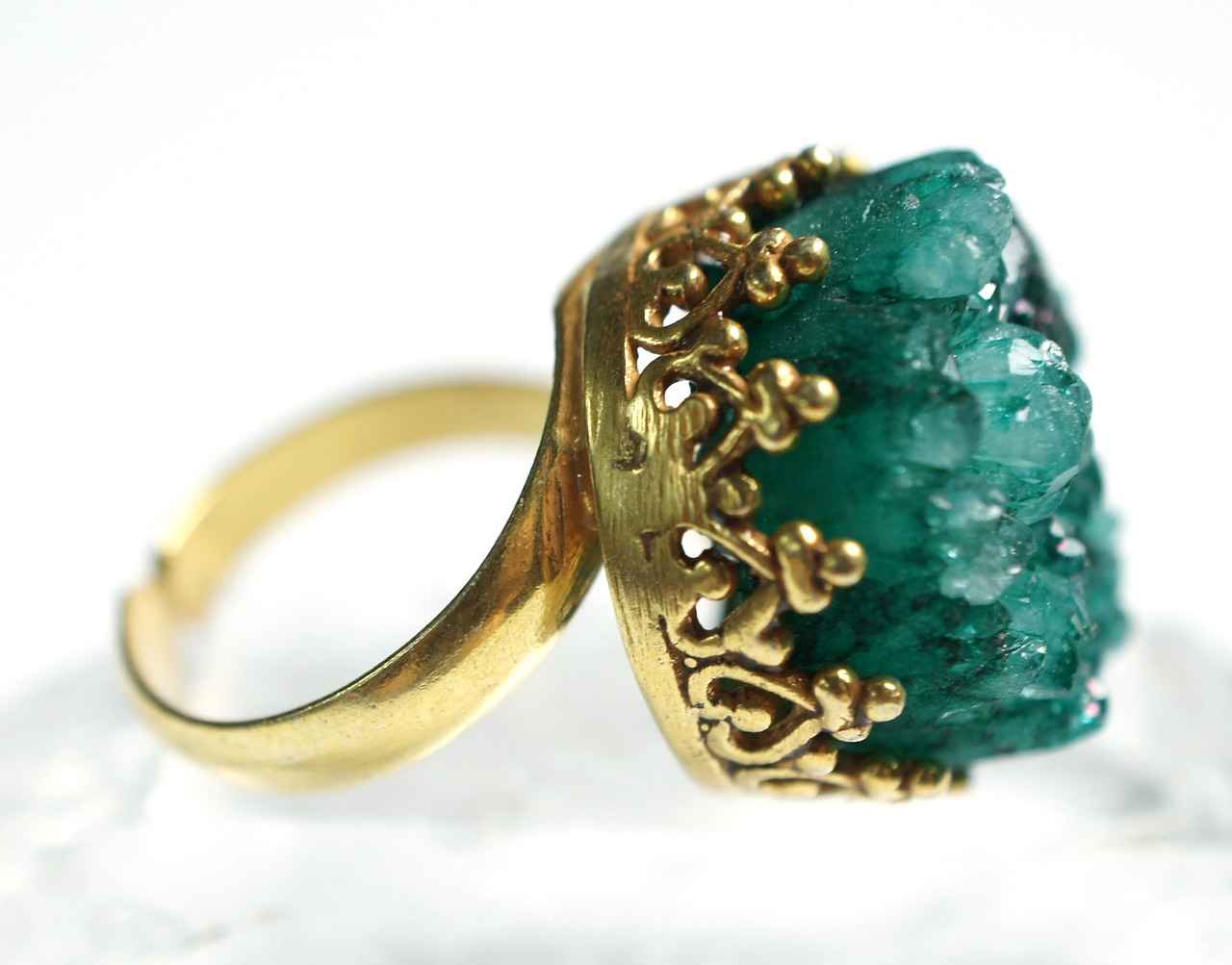
What Strategies Can Help You Negotiate Effectively?
Negotiating effectively is a crucial skill that can significantly impact the outcome of your jewelry sale. By employing the right strategies, you can enhance your chances of securing a better price while ensuring a smooth transaction. Below are some practical tips to improve your negotiation skills.
Before entering any negotiation, it is vital to establish your objectives. Ask yourself:
- What is the minimum price I am willing to accept?
- What is my ideal price?
- Are there specific terms I want to include in the sale?
Having clear objectives will help you stay focused and confident during discussions.
Knowledge is power in negotiations. Conduct thorough research on:
- Current market trends: Understanding the demand for your jewelry type can inform your pricing strategy.
- Comparable sales: Look for similar items sold recently to gauge what buyers are willing to pay.
- Buyer profiles: Knowing your audience can help tailor your pitch effectively.
Preparation will not only boost your confidence but also provide you with the necessary data to justify your asking price.
During negotiations, clear and effective communication is paramount. Consider the following techniques:
- Active listening: Pay attention to the buyer’s needs and concerns. This will help you address objections and find common ground.
- Body language: Maintain open and positive body language to foster a friendly atmosphere.
- Ask open-ended questions: Encourage dialogue by asking questions that require more than a simple yes or no.
While it’s essential to have your objectives, being flexible can lead to better outcomes. Be open to:
- Adjusting your asking price: If the buyer presents a compelling case, consider adjusting your price within a reasonable range.
- Alternative offers: Sometimes, buyers may offer non-monetary terms that could be beneficial, such as quicker payment or a more favorable sale timeline.
Patience is a valuable asset in negotiations. Avoid rushing into decisions or accepting the first offer. Instead:
- Take your time: Allow the buyer to think about their offer. This can lead to better counteroffers.
- Don’t show desperation: Maintaining a calm demeanor can signal that you are confident in your jewelry’s value.
Receiving a low offer can be disheartening, but it’s essential to respond professionally. Consider:
- Countering with justifications: Use your research to explain why your asking price is reasonable.
- Staying professional: Keep the conversation respectful, even if the offer is below your expectations.
Sometimes, the best decision is to walk away from a negotiation. Recognize the signs that indicate a deal may not be worth pursuing:
- Offers below your minimum acceptable price: If the buyer cannot meet your minimum, it may be time to part ways.
- Negative atmosphere: If the negotiation becomes hostile or uncomfortable, stepping back can preserve your dignity and future opportunities.
By implementing these strategies, you can enhance your negotiation skills and improve your chances of achieving a favorable outcome when selling your jewelry.
Setting a Minimum Acceptable Price
When it comes to selling jewelry, one of the most crucial steps is . This price acts as a safety net, ensuring that you do not agree to a deal that undervalues your precious items. By establishing this threshold before negotiations commence, you can navigate discussions with greater confidence and clarity.
Establishing a minimum price helps you maintain focus during negotiations. It serves as a benchmark, guiding you when faced with various offers. If you know your lowest acceptable price, you can confidently counter offers that fall short, ensuring that you do not settle for less than your jewelry’s worth.
- Research Market Trends: Investigate current market prices for similar pieces. Websites and auction platforms can provide valuable insights into what buyers are willing to pay.
- Consider Material and Craftsmanship: Assess the quality of materials and the level of craftsmanship involved in your jewelry. High-quality items generally warrant a higher minimum price.
- Account for Sentimental Value: While it’s important to recognize the emotional attachment to your jewelry, ensure that this does not cloud your judgment. Focus on market value rather than personal sentiment.
Without a predetermined minimum price, you risk accepting offers that are far below the value of your jewelry. This can lead to feelings of regret and dissatisfaction post-sale. Furthermore, it may compromise your negotiating position, making you appear desperate to sell.
When entering negotiations, it’s vital to communicate your minimum price effectively. Here are some strategies:
- Be Direct: Clearly state your minimum price when prompted. This transparency can foster trust with potential buyers.
- Justify Your Price: Be prepared to explain why your jewelry is worth the minimum price you’ve set. Highlight unique features, quality, and market comparisons.
- Stay Firm: If an offer comes in below your minimum price, do not hesitate to decline politely. This shows that you value your jewelry and are not willing to compromise on its worth.
In some cases, you may need to reassess your minimum price based on the feedback you receive during negotiations. If potential buyers consistently offer lower amounts, consider whether your expectations are aligned with market realities. Adjusting your minimum price can be a strategic move to facilitate a sale while still ensuring you receive a fair value.
Setting a minimum acceptable price is a fundamental aspect of the jewelry selling process. It empowers you to negotiate confidently and ensures that you do not settle for less than your jewelry’s true value. By conducting thorough research, understanding your jewelry’s intrinsic worth, and communicating effectively with buyers, you can navigate the negotiation landscape successfully.
Being Patient and Open to Offers
When it comes to negotiating the best price for your jewelry, patience and an open mind can serve as invaluable assets. In the fast-paced world of sales, many sellers rush to close a deal, often settling for less than what their items are worth. However, taking a step back and allowing the negotiation process to unfold can lead to unexpected opportunities and more favorable outcomes.
Negotiation is not just about the initial offer; it’s about the entire process. By exercising patience, you can create a more relaxed atmosphere that encourages potential buyers to feel comfortable making offers. A rushed negotiation can lead to missed opportunities, where both parties may overlook valuable aspects of the deal. Taking your time allows you to carefully consider each offer and respond thoughtfully, rather than reactively.
When you remain open to different offers, you open the door to creative solutions. Buyers may propose terms that you hadn’t considered, such as trade-ins, payment plans, or even bundled deals that could enhance your overall profit. For instance, a buyer might offer a lower cash price but include additional items that could increase the total value of the transaction. Being receptive to these alternatives can lead to a win-win situation.
Another advantage of patience is the ability to make strategic counteroffers. Instead of immediately rejecting a low offer, take the time to assess it against your minimum acceptable price. You can respond with a counteroffer that reflects your jewelry’s true value, backed by research and market data. This not only shows that you are serious about your asking price but also opens up a dialogue for further negotiation.
Being patient allows you to build rapport with potential buyers. A friendly, approachable demeanor can lead to better negotiation outcomes. Buyers are more likely to engage in meaningful discussions when they feel respected and valued. Taking the time to listen to their needs and preferences can also provide insights into how to tailor your offers to meet their expectations.
Incorporating patience into your negotiation strategy also means staying informed about market trends. Prices for jewelry can fluctuate based on demand, fashion trends, and economic conditions. By being aware of these factors, you can better position yourself in negotiations. If you notice a trend that favors your jewelry type, you can confidently hold out for a better offer.
Negotiations can sometimes become emotional, especially when dealing with personal items like jewelry. Patience helps maintain emotional control, allowing you to make rational decisions rather than impulsive ones. This emotional stability can be the difference between a successful sale and a regrettable decision.
In summary, patience is a powerful tool in the art of negotiation. By being open to various offers and allowing the negotiation process to develop naturally, you can uncover opportunities that might otherwise go unnoticed. Remember to stay informed, build rapport, and maintain emotional control throughout the process. These strategies not only enhance your chances of securing a better deal but also contribute to a more fulfilling selling experience.
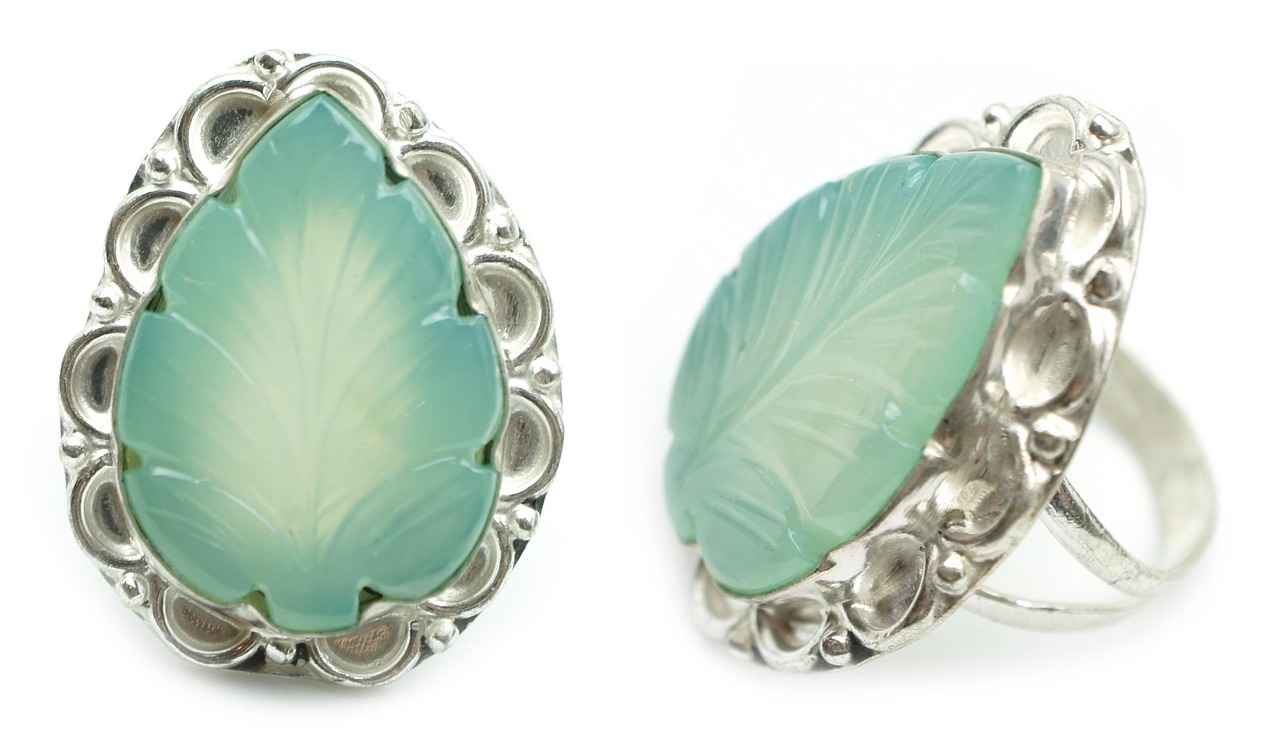
How to Handle Low Offers?
Receiving low offers can be disheartening, especially when you have invested time and emotion into your jewelry. However, knowing how to effectively respond to these offers is crucial to keeping negotiations alive and potentially securing a better deal. This section provides essential strategies to handle low offers with confidence and professionalism.
Low offers can stem from various factors, including market conditions, buyer perceptions, and negotiation tactics. Understanding these reasons can help you remain calm and composed when faced with a disappointing offer.
- Evaluate the Offer: Before reacting, take a moment to assess the offer. Is it significantly lower than your expectations? Understanding the context can help you decide your next steps.
- Counter with Research: Use your research to counter low offers effectively. Present data regarding similar items, market trends, and the intrinsic value of your jewelry to justify your asking price.
- Highlight Unique Features: If your jewelry has unique features, such as rare gemstones or exceptional craftsmanship, make sure to emphasize these aspects. This can help shift the buyer’s perspective and justify a higher price.
Keeping a professional demeanor is crucial when handling low offers. Responding calmly and respectfully can create a positive atmosphere that encourages further discussion. Avoid becoming defensive or confrontational, as this can close the door on potential negotiations.
Recognizing when to walk away from an offer is equally important. If a buyer is unwilling to negotiate or continues to make unreasonably low offers, it may be best to politely decline and seek other opportunities. Knowing your minimum acceptable price beforehand can help you make this decision with confidence.
Sometimes, silence can be a powerful negotiation tool. After presenting your counteroffer, allow the buyer time to process the information. This pause can create a sense of urgency and may lead them to reconsider their initial offer.
Establishing a rapport with potential buyers can significantly impact the negotiation process. Engaging in friendly conversation and showing genuine interest in their needs can foster a more collaborative atmosphere, making them more likely to consider your price.
In conclusion, while receiving low offers can be frustrating, employing effective strategies can turn the situation around. By evaluating offers, maintaining professionalism, and leveraging your knowledge of the market, you can navigate these challenging negotiations successfully. Remember, the goal is to find a mutually beneficial agreement that respects both your needs and those of the buyer.
Countering with Justifications
When negotiating the sale of jewelry, encountering a low offer can be a common challenge. However, it’s essential to remain composed and strategic in your response. One effective approach is to counter with justifications that are rooted in thorough research. This method not only reinforces your asking price but also encourages potential buyers to consider a more reasonable offer.
Countering a low offer is not merely about rejecting the proposal; it’s about opening a dialogue. When you present justifications, you provide the buyer with context and reasons to reconsider their offer. This can include:
- Market Research: Present data on similar pieces sold recently to substantiate your asking price.
- Quality and Craftsmanship: Highlight the superior materials and craftsmanship that set your jewelry apart.
- Emotional Value: If applicable, share the sentimental value or unique story behind the piece.
To build a strong case for your asking price, consider the following steps:
- Conduct Comparative Analysis: Look at online marketplaces and auction results for similar items. This data will empower you with concrete examples during negotiations.
- Professional Appraisals: Obtain a professional appraisal that outlines the value of your jewelry based on current market trends.
- Highlight Unique Features: If your jewelry has unique characteristics, such as rare gemstones or a designer label, make sure to emphasize these points.
Confidence is key when countering low offers. By having well-researched justifications, you can approach negotiations with a sense of authority. This confidence can be contagious, often leading buyers to reassess their initial offer. Here are some tips to maintain your composure:
- Practice Your Pitch: Rehearse how you will present your justifications to ensure clarity and confidence.
- Stay Calm: Even if the initial offer is disappointing, maintaining a calm demeanor will help keep the conversation productive.
- Be Prepared to Walk Away: If negotiations stall, don’t be afraid to walk away. This can sometimes prompt buyers to reconsider their position.
Understanding the buyer’s perspective can also enhance your negotiation strategy. By employing emotional intelligence, you can gauge their motivations and concerns. Addressing these can create a more collaborative atmosphere. Consider the following:
- Listen Actively: Pay attention to the buyer’s needs and concerns. This can provide insights into how to adjust your justifications effectively.
- Empathize: Acknowledge the buyer’s position. This can help build rapport and facilitate a more amicable negotiation process.
In summary, countering low offers with well-researched justifications is a powerful strategy in jewelry negotiations. By presenting clear, factual information and maintaining a confident, empathetic approach, you can significantly improve your chances of achieving a better price. Remember, effective negotiation is about collaboration and understanding, paving the way for a successful transaction.
Maintaining Professionalism
When engaging in negotiations, particularly in the jewelry market, it is essential to maintain a professional demeanor. This is especially true when faced with low offers that may feel disheartening. By keeping a calm and composed attitude, you not only uphold your own integrity but also foster a more positive atmosphere for negotiation.
Why is professionalism so critical in negotiations? First and foremost, it helps establish credibility. Buyers are more likely to respect a seller who approaches discussions with poise and confidence. This respect can often translate into better offers. When you react negatively to low offers, you risk alienating potential buyers, which can hinder the negotiation process.
Moreover, maintaining professionalism allows you to think clearly and strategically. Instead of reacting impulsively to a low offer, you can take a moment to assess the situation, consider your options, and respond appropriately. This level-headedness can pave the way for constructive dialogue, where both parties feel heard and valued.
To effectively maintain professionalism during negotiations, consider the following strategies:
- Stay Calm: Regardless of the offers you receive, keeping your emotions in check is vital. Take deep breaths and remind yourself that negotiation is a process.
- Listen Actively: Show genuine interest in what the buyer is saying. Listening can provide insights into their motivations and concerns, which may help you tailor your responses.
- Respond with Facts: When faced with low offers, counter with well-researched justifications. Present data on market trends, comparable sales, and the intrinsic value of your jewelry to strengthen your position.
In addition to these strategies, remember that patience is a virtue in negotiations. Rushing to accept an offer out of frustration can lead to missed opportunities. Allow the negotiation to unfold naturally, and be open to the possibility of the buyer coming back with a more reasonable offer after further discussion.
It’s also essential to set boundaries. Before entering into negotiations, determine your minimum acceptable price. This will help you navigate low offers without compromising your values or the worth of your jewelry. If a buyer’s offer falls below this threshold, you can politely decline and suggest a more appropriate price based on your research.
By maintaining professionalism, you not only enhance your negotiation skills but also increase the likelihood of achieving a favorable outcome. Remember, the goal is not merely to sell your jewelry but to do so in a way that reflects its true value and your worth as a seller.
In summary, professionalism is a key component of successful negotiations in the jewelry market. By remaining calm, listening actively, and responding with factual information, you can create a positive negotiation environment that encourages better offers and outcomes.

What Are Common Mistakes to Avoid in Jewelry Negotiations?
When it comes to selling jewelry, understanding the common mistakes that can occur during negotiations is essential for achieving the best possible price. Many sellers unknowingly make errors that can significantly affect their final selling price. This section will delve into the key pitfalls to avoid, ensuring that you are well-prepared and informed as you navigate the negotiation process.
One of the most prevalent mistakes is overvaluing your jewelry. Sentimental attachments can cloud judgment, leading sellers to set unrealistic price expectations. It’s crucial to conduct thorough research and understand the market value of your piece. Consider factors such as brand reputation, material quality, and current market trends to establish a fair asking price.
Preparation is key in any negotiation. Failing to prepare adequately can result in unfavorable outcomes. Before entering negotiations, gather all necessary information about your jewelry, including appraisals, comparable sales, and current market conditions. This knowledge not only boosts your confidence but also provides a solid foundation for your price expectations.
While it’s natural to feel attached to your jewelry, letting emotions dictate your decisions can be detrimental. Buyers are typically more interested in the item’s monetary value rather than its sentimental worth. Keeping a clear distinction between emotional and financial value can help you negotiate more effectively.
Market trends play a significant role in jewelry pricing. Ignoring fluctuations in demand and supply can lead to mispricing your jewelry. Regularly check online marketplaces and auction sites to stay updated on current trends and adjust your expectations accordingly. This knowledge will empower you during negotiations, allowing you to present a compelling case for your asking price.
Another common mistake is being inflexible during negotiations. Sticking rigidly to your initial asking price can deter potential buyers. Instead, be open to discussions and counteroffers. Flexibility can create a more collaborative negotiation environment, increasing the chances of reaching a mutually beneficial agreement.
Every piece of jewelry has its unique attributes that contribute to its value. Neglecting to highlight these features during negotiations can lead to missed opportunities for a higher selling price. Make sure to emphasize any unique craftsmanship, rare materials, or historical significance associated with your jewelry, as these can significantly enhance its perceived value.
Entering negotiations without a clear understanding of your bottom line can lead to poor decision-making. Establish a minimum price you are willing to accept before negotiations begin. This clarity will help you remain focused and confident during discussions, preventing you from accepting a deal that is less than satisfactory.
How you present your jewelry can greatly influence buyer perception. Underestimating the importance of presentation can detract from your piece’s value. Ensure your jewelry is clean, well-maintained, and displayed attractively during negotiations. A polished presentation can create a positive impression and justify a higher asking price.
By being aware of these common mistakes, you can navigate the negotiation process with confidence and aim for a selling price that reflects the true value of your jewelry. Remember that preparation, flexibility, and awareness are key components in achieving a successful sale.
Overvaluing Your Jewelry
can be a significant hurdle when it comes to selling your pieces. Many individuals attach emotional significance to their jewelry, often leading them to inflate its worth beyond its actual market value. This can create challenges during negotiations, making it harder to strike a fair deal. In this section, we will delve into the reasons why overvaluation occurs and offer insights on how to approach the valuation process effectively.
Sentimental attachments to jewelry can cloud judgment. Items passed down through generations or given as gifts often carry emotional weight that can skew perceptions of value. As a seller, it’s crucial to recognize this bias and separate emotional value from market value.
Market value is determined by various factors, including material composition, craftsmanship, and current trends in the jewelry market. To avoid overvaluation, consider the following:
- Research Comparable Sales: Look for similar items sold recently to gauge the market price accurately.
- Consult Experts: Engaging with appraisers or jewelers can provide a professional perspective on the value of your jewelry.
- Stay Updated: The jewelry market fluctuates. Keeping track of trends can help you understand when to sell and at what price.
To ensure successful negotiations, follow these strategies:
- Set a Realistic Asking Price: Before listing your jewelry, determine a fair price based on your research. This will help you remain grounded during negotiations.
- Be Open to Feedback: Listen to potential buyers’ offers and feedback. This can provide insight into how others perceive the value of your jewelry.
- Avoid Emotional Attachments: Remember that buyers may not share your personal connection to the item. Focus on its market value rather than sentimental worth.
Sometimes, despite your best efforts, you may receive offers that are below your expectations. Here’s how to handle such situations:
- Evaluate Offers Objectively: Consider each offer carefully. If it’s significantly lower than your asking price, analyze the reasons behind it.
- Be Willing to Compromise: If you receive reasonable offers, be open to negotiation. A small concession on your part may lead to a successful sale.
- Reassess Your Price: If you consistently receive low offers, it may be time to reevaluate your asking price based on market conditions.
Obtaining a professional appraisal can be invaluable in setting a fair market price. An expert can provide an unbiased evaluation of your jewelry, helping you avoid the pitfalls of overvaluation. This not only strengthens your negotiating position but also builds trust with potential buyers.
In conclusion, while it’s natural to have a connection to your jewelry, being aware of the potential for overvaluation is crucial. By understanding market value, conducting thorough research, and remaining open to negotiation, you can successfully navigate the selling process while maximizing your returns.
Failing to Prepare
When it comes to selling jewelry, preparation is key. Entering negotiations without adequate preparation can lead to unfavorable outcomes, potentially costing you significantly in terms of price and satisfaction. It is essential to understand that knowing your jewelry’s worth is not just beneficial; it is critical for successful negotiations.
Preparation allows you to approach negotiations with confidence. Researching your jewelry’s value gives you a solid foundation, enabling you to articulate your asking price effectively. Without this knowledge, you may find yourself at a disadvantage, unable to counter low offers or justify your price.
To ensure successful negotiations, it is vital to conduct thorough research. This includes:
- Understanding Material Value: Familiarize yourself with the materials used in your jewelry, such as gold, silver, and gemstones. Each of these materials has its own market value that fluctuates over time.
- Analyzing Gemstone Quality: The quality and rarity of gemstones can significantly impact their value. Knowing the characteristics of your stones can help you defend your asking price.
- Reviewing Market Trends: Keep an eye on current market trends for similar jewelry pieces. Websites like eBay or specialized jewelry marketplaces can provide insight into what buyers are willing to pay.
One of the most effective ways to gauge your jewelry’s worth is through a professional appraisal. An expert can provide an unbiased assessment, which can serve as a powerful tool during negotiations. Having a documented appraisal can help you substantiate your asking price and instill confidence in potential buyers.
Before entering negotiations, it is crucial to establish a minimum acceptable price. This figure should be based on your research and appraisal findings. Knowing your lowest acceptable offer helps maintain focus during negotiations and prevents you from making impulsive decisions that could lead to regret later.
Preparation also involves honing your communication skills. Being able to articulate your jewelry’s value and the reasons behind your asking price is essential. Practice responding to potential buyer questions and objections to ensure you are ready to defend your position.
While it’s important to have a minimum price in mind, being too rigid can hinder your chances of making a sale. Flexibility can lead to unexpected opportunities. Consider all offers carefully and be willing to negotiate to find a middle ground that satisfies both parties.
Receiving low offers can be discouraging, but how you respond can keep negotiations alive. Countering with justifications based on your research can reinforce your asking price and encourage better offers. Maintain professionalism throughout the process, as a respectful demeanor can foster a positive atmosphere that may lead to a successful sale.
Being aware of common pitfalls is essential to effective negotiation. Overvaluing your jewelry or failing to prepare can significantly hinder your chances of achieving a favorable outcome. Always approach negotiations with a clear understanding of your jewelry’s market value and be ready to adapt your strategy as needed.
In summary, preparation is the cornerstone of successful jewelry negotiations. By researching your jewelry’s worth, utilizing professional appraisals, and practicing effective communication, you can position yourself for a successful transaction. Remember, a well-prepared seller is often the one who walks away with the best deal.

When Should You Consider Professional Help?
When it comes to selling jewelry, the process can often be complex and emotionally charged. While many individuals feel confident managing the sale of their pieces independently, there are specific circumstances where seeking professional help can be incredibly advantageous. This section will explore various situations in which engaging experts can streamline the selling process and potentially increase your earnings.
Understanding the right moments to seek professional help can make a significant difference in your selling experience. Here are some scenarios where expert guidance may be beneficial:
- High-Value Items: If you possess jewelry that is particularly valuable, such as antique pieces, designer items, or those with rare gemstones, consulting with a professional can ensure you receive the best price. Experts can provide appraisals and market insights that you may not have access to.
- Complex Sales: Selling jewelry can sometimes involve intricate details, such as provenance, authenticity verification, or legal considerations. In these cases, a professional can navigate the complexities and help you avoid potential pitfalls.
- Market Knowledge: Professionals in the jewelry industry often have extensive knowledge of current market trends and buyer preferences. Their insight can help you position your jewelry effectively and set a competitive asking price.
Auction houses can be a valuable resource for selling high-end jewelry. They provide a platform for competitive bidding, which can significantly increase the final sale price. Here are some benefits of using auction houses:
- Wider Audience: Auction houses attract a diverse range of buyers, including collectors and investors, which can lead to higher bids.
- Professional Marketing: These establishments have marketing teams that can showcase your jewelry effectively, increasing its visibility and appeal.
- Expert Evaluation: Auction houses often employ appraisers who can assess the value of your jewelry accurately, ensuring you start with a realistic asking price.
Hiring a jewelry broker can also be a smart move, especially if you are unfamiliar with the selling process. Brokers can handle negotiations on your behalf, which can be beneficial in several ways:
- Industry Connections: Brokers typically have established relationships within the jewelry market, allowing them to reach potential buyers more effectively than an individual seller.
- Negotiation Skills: Experienced brokers are skilled negotiators who understand market dynamics and can advocate for the best price on your behalf.
- Time-Saving: Selling jewelry can be time-consuming. A broker can manage the process for you, allowing you to focus on other important matters.
Obtaining a professional appraisal is crucial if you are unsure of your jewelry’s value. An appraisal provides an objective assessment, which can be invaluable during negotiations. Here are a few reasons why an appraisal is necessary:
- Accurate Value Assessment: Appraisers evaluate factors such as materials, craftsmanship, and market trends to determine a fair value for your jewelry.
- Insurance Purposes: If you plan to insure your jewelry, having a professional appraisal is often required to establish its value.
- Peace of Mind: Knowing the true value of your jewelry can empower you during the selling process, helping you avoid underselling your pieces.
In conclusion, while many individuals are capable of selling their jewelry independently, there are distinct advantages to seeking professional help in certain situations. Whether through auction houses, brokers, or appraisers, engaging experts can facilitate a smoother selling experience and potentially yield higher returns.
Using Auction Houses
When it comes to selling jewelry, especially pieces of significant value, auction houses can offer a unique advantage. These establishments provide a platform for competitive bidding, which can potentially lead to higher prices than those typically achieved through traditional sales methods. Understanding how auction houses operate and the benefits they offer can empower sellers to make informed decisions.
Auction houses are specialized venues where items, including jewelry, are sold to the highest bidder. They host live auctions, online auctions, or a combination of both, allowing sellers to reach a wide audience of potential buyers. This competitive environment can drive prices up, particularly for unique or rare items.
- Competitive Bidding: The auction format encourages bidders to compete against one another, often resulting in prices that exceed the seller’s expectations.
- Expert Valuation: Auction houses typically employ experts who can accurately assess the value of your jewelry. Their appraisals can provide a strong foundation for your selling price.
- Marketing Reach: Established auction houses have extensive networks and marketing resources, attracting collectors and investors who are willing to pay premium prices.
- Transparency: Auctions provide a transparent selling process, allowing you to see real-time bids and understand the market demand for your items.
Preparation is key when selling jewelry at auction. Here are some essential steps:
- Get a Professional Appraisal: Before listing your jewelry, obtain a professional appraisal to understand its market value.
- Clean and Repair: Ensure that your jewelry is in excellent condition. Clean it thoroughly and address any necessary repairs to enhance its appeal.
- Document Provenance: If applicable, gather any documents that prove the history or authenticity of your jewelry, as this can significantly increase its value.
Once your jewelry is listed, you can expect the auction house to handle the promotion and logistics. Here’s what typically happens:
- Preview Events: Many auction houses host preview events where potential buyers can examine items before bidding.
- Live or Online Bidding: Auctions can be conducted live in person or online, providing flexibility for bidders and sellers alike.
- Post-Auction Settlement: After the auction concludes, the auction house will facilitate the sale and transfer of funds, typically taking a commission from the final sale price.
While auction houses can yield higher prices, it’s important to be aware of the associated fees:
- Seller’s Commission: Auction houses usually charge a commission based on the final sale price, which can range from 5% to 25%.
- Marketing Fees: Some auction houses may charge additional fees for marketing and promoting your jewelry.
- Insurance Costs: If your jewelry is particularly valuable, consider insuring it during the auction process for added peace of mind.
Selecting the right auction house can make a significant difference in your selling experience. Consider the following:
- Reputation: Research the auction house’s reputation, including past auction results and customer reviews.
- Specialization: Choose an auction house that specializes in jewelry or luxury items to ensure they have the right audience.
- Terms and Conditions: Review the terms and conditions carefully, focusing on fees and policies regarding unsold items.
In conclusion, utilizing auction houses can be a strategic choice for selling valuable jewelry. By understanding the auction process and preparing adequately, sellers can maximize their potential earnings and enjoy a more rewarding selling experience.
Hiring a Jewelry Broker
When it comes to selling jewelry, many individuals may not realize the significant advantages that come from hiring a jewelry broker. These professionals possess a wealth of industry knowledge and connections that can be invaluable in the selling process. In this section, we will explore how hiring a jewelry broker can enhance your selling experience, increase your potential profits, and streamline the overall transaction.
A jewelry broker acts as an intermediary between sellers and buyers, utilizing their expertise to facilitate sales. They have extensive networks within the industry, including connections to collectors, dealers, and auction houses. This access can lead to better selling opportunities and prices that individual sellers might not achieve on their own.
One of the primary benefits of hiring a jewelry broker is their ability to negotiate effectively on your behalf. Here are some key ways they can help:
- Industry Expertise: Brokers are well-versed in market trends and pricing strategies, enabling them to advocate for a fair price based on current conditions.
- Strong Negotiation Skills: With experience in negotiations, brokers can handle discussions with potential buyers, ensuring you get the best possible deal.
- Access to Exclusive Markets: Brokers often have access to exclusive markets and buyers who may be willing to pay higher prices for unique pieces.
Engaging a jewelry broker can lead to numerous advantages:
- Better Selling Prices: Due to their negotiation skills and market knowledge, brokers can often secure higher prices than sellers could achieve independently.
- Smoother Process: The selling process can be complex, but brokers streamline it by handling paperwork, communications, and logistics, allowing you to focus on other priorities.
- Reduced Stress: Selling jewelry can be an emotional experience, especially if it has sentimental value. A broker allows you to distance yourself from the process, reducing stress and anxiety.
While some may feel comfortable selling their jewelry independently, there are specific situations where hiring a broker is particularly beneficial:
- High-Value Items: If you are selling high-value pieces, a broker’s expertise can ensure you maximize your return.
- Complex Transactions: For intricate or rare items, brokers can navigate the complexities of the market more effectively.
- Lack of Time or Experience: If you are unfamiliar with the jewelry market or lack the time to engage in negotiations, a broker can provide invaluable assistance.
Selecting the right broker is crucial for a successful sale. Here are some tips to consider:
- Research Their Reputation: Look for brokers with positive reviews and a solid track record in the industry.
- Check Credentials: Ensure that the broker is certified and has relevant experience in jewelry transactions.
- Discuss Fees: Understand the broker’s fee structure upfront to avoid unexpected costs later in the process.
In summary, hiring a jewelry broker can significantly enhance your selling experience by leveraging their expertise and connections. By understanding the benefits and knowing when to engage their services, you can navigate the jewelry market more effectively and achieve the best possible outcomes for your valuable pieces.
Frequently Asked Questions
- What should I know before negotiating the price of my jewelry?
Before diving into negotiations, it’s crucial to understand the value of your jewelry. Research the current market trends, the material value, and similar items’ prices. This knowledge will empower you during discussions and help you set a realistic asking price.
- How can I effectively respond to low offers?
When faced with a low offer, don’t panic! Instead, counter with justifications based on your research. Highlight the unique features of your piece and its market value. Staying calm and professional can turn the conversation around and lead to better offers.
- Is it worth getting a professional appraisal?
Absolutely! A professional appraisal can provide an objective assessment of your jewelry’s worth, which is a solid foundation for your negotiations. It can also instill confidence in potential buyers, showing them that you are serious about the sale.
- What are some common mistakes to avoid during negotiations?
One major mistake is overvaluing your jewelry due to sentimental attachment. Always keep market value in mind. Additionally, failing to prepare adequately can lead to unfavorable outcomes, so do your homework before negotiating!
- When should I consider hiring a jewelry broker?
If your jewelry is particularly valuable or if you’re unfamiliar with the selling process, hiring a jewelry broker might be a smart move. They can leverage their expertise and connections to negotiate a better price on your behalf.

